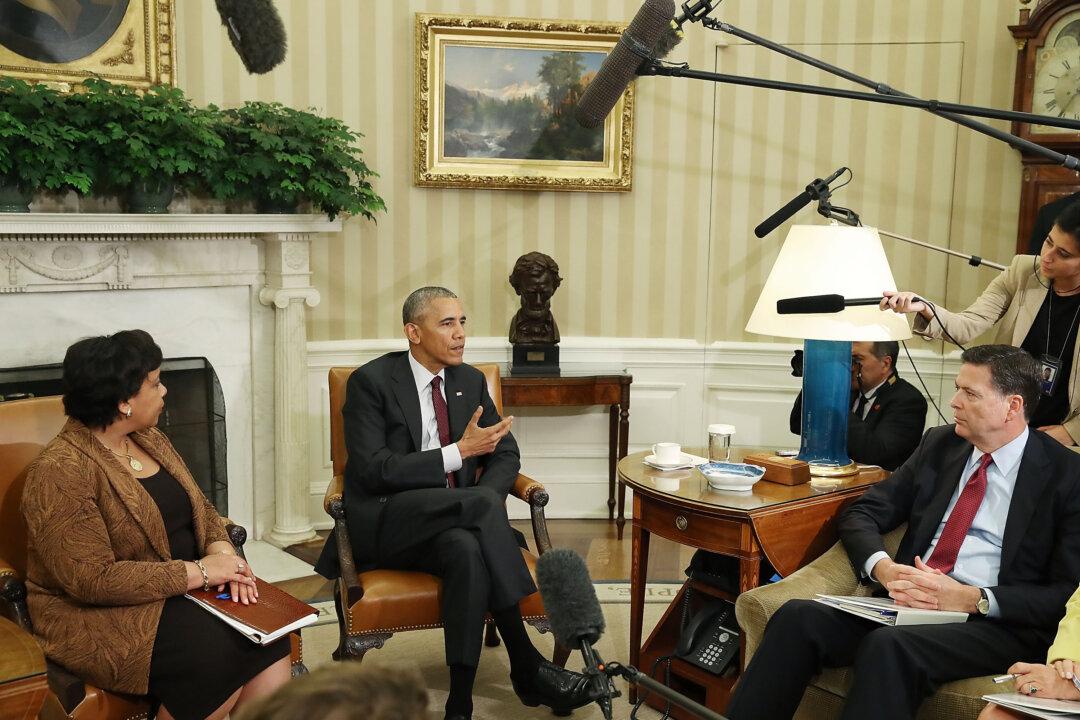A controversial and classified document, alleging potential misconduct by former Attorney General Loretta Lynch, resurfaced on Dec. 7, suggesting lawmakers may press Lynch about the memo during her own deposition.
While the contents of the document remain classified, media leaks suggest it includes an email from then-chair of the Democratic National Committee Debbie Wasserman Schultz to Leonard Benardo of the Open Society Foundations, the nonprofit organization run by billionaire Democratic fundraiser George Soros. The email shows Lynch assured Clinton-campaign staffer Amanda Renteria that the FBI’s investigation into Hillary Clinton’s unauthorized access to the private email server would not “go too far.”





